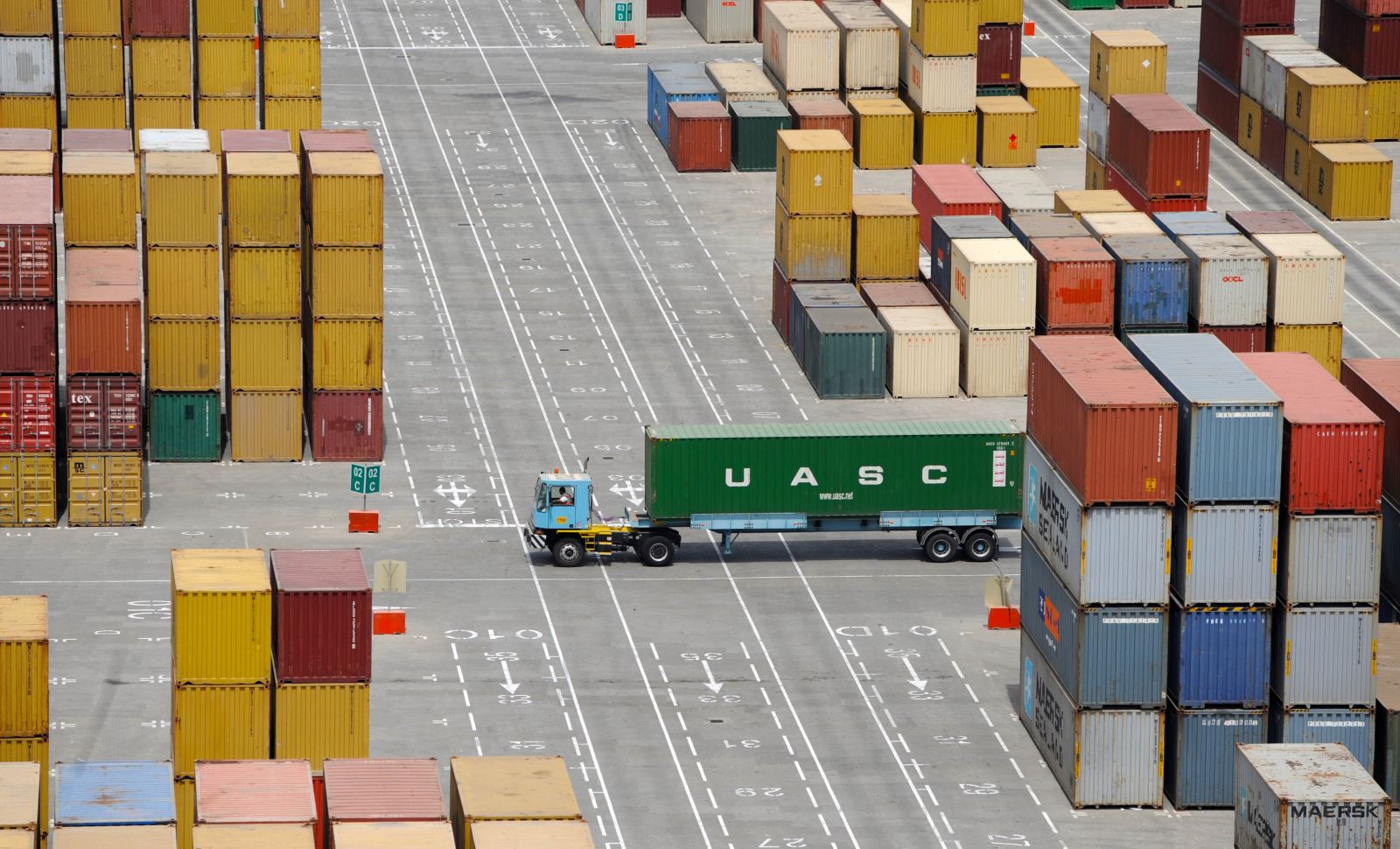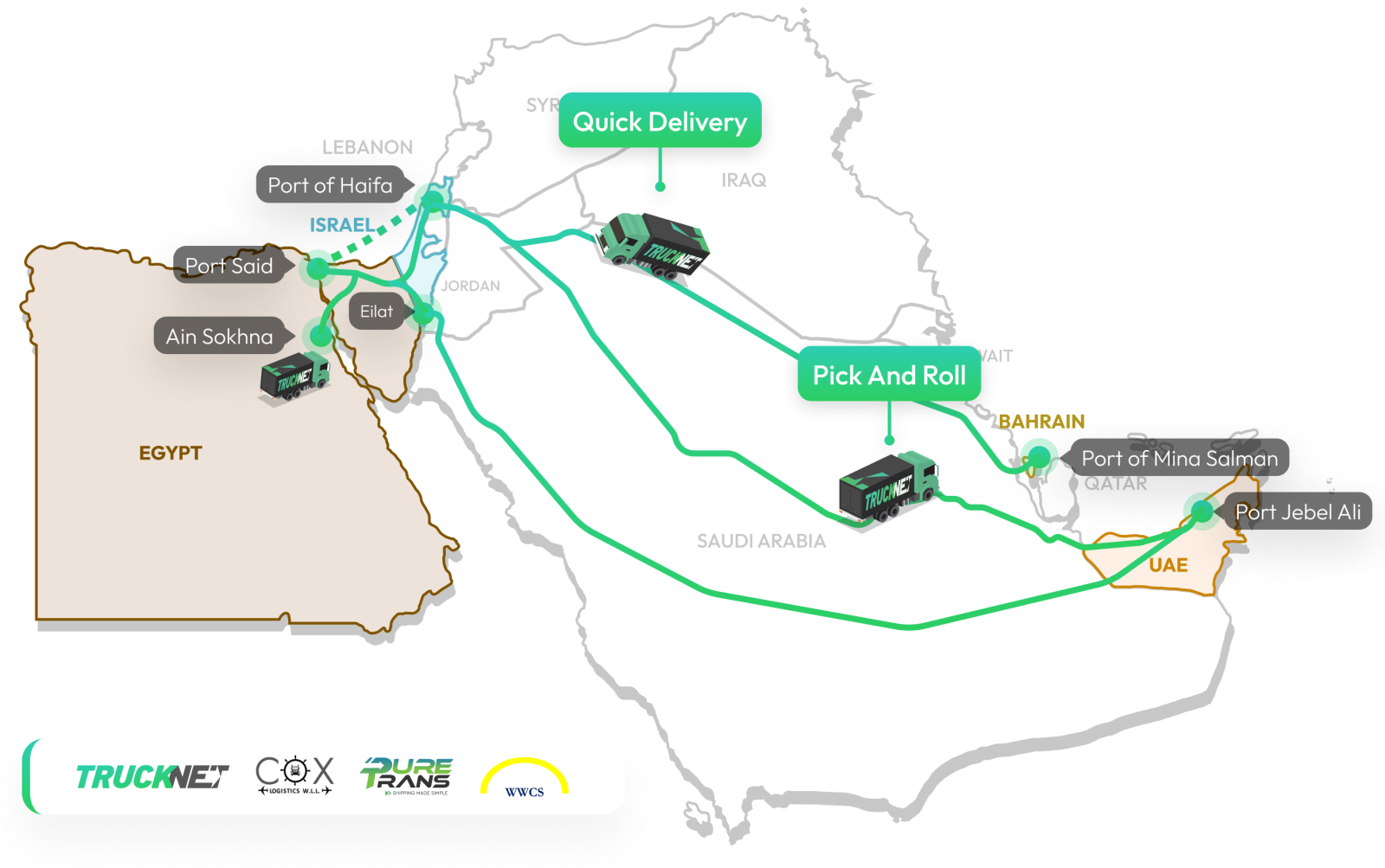Trucknet and Hapag-Lloyd AG are among the companies opening trade routes through the heart of the Middle East for the first time to avoid the Houthi-choked Red Sea.

Trucknet is sending goods such as food, plastics, chemicals and electronics from ports in the United Arab Emirates and Bahrain, through Saudi Arabia and Jordan, to Israel and further to Europe, CEO Hanan Fridman said on February 2. Hapag-Lloyd AG, the world’s fifth-largest container shipping line, is looking to connect Jebel Ali in Dubai and two eastern Saudi ports with Jeddah on the west coast. Another option would connect Jebel Ali with Jordan.
The routes are a temporary solution to get goods to their destination without having to go through the Houthi-controlled area around the Bab el-Mandeb Strait in the southern Red Sea, where the Houthis have launched missile and drone attacks for months, forcing many commercial ships to take the longer route around Africa.
This situation disrupts vital trade flows, increases the cost of transporting goods and the impact is starting to ripple through the global economy.
Companies are being forced to look for more ambitious alternatives. Trucknet’s route has not been tried on a commercial scale before, due to the strained relations between Israel and Arab states. While the Abraham Accords between the UAE, Bahrain and Israel three years ago eased tensions, efforts to normalize relations between Saudi Arabia and Israel have been stalled by the Gaza war.
Freight from India, Thailand, South Korea and China has been trucked in in recent weeks, Mr. Fridman said. Cargo to Asia is also going in the opposite direction, helping to reduce overall costs.
However, the long-term viability of the new route will depend on stability in the region. The volume of goods that trucks can carry is also significantly smaller than that transported by ship. However, the road route remains an alternative for transporting some goods.
Hapag-Lloyd spokesman Nils Haupt acknowledged that the new routes were a short-term solution for shippers moving only a limited amount of cargo, rather than thousands of containers. He said that road transport was neither fast nor easy, but could help boost trade flows through regional ports like Jeddah, which are cut off from normal links to the global economy.
Truck trips from the port of Jebel Ali to the Israeli trade gateway of Haifa take about three to four days, compared with 10 or more days around Africa’s Cape of Good Hope, according to research released this week by S&P Global Market Intelligence. The shorter time is an attractive factor for this mode of transportation.
“Road, while moving a small amount of freight, will remain a viable solution for shipments to Israel,” said Chris Rogers, head of supply chain research at S&P Global.

According to Trucknet’s website, the company is already shipping cargo along the route, along with companies like Dubai’s PureTrans FZCO, Bahrain’s Cox Logistics and Egypt’s WWCS. Tests from the Gulf to Israel began earlier this year. When the Houthis began threatening ships in the Red Sea following Israel’s war with Hamas, Trucknet was ready to step up its plans.
“We did some pilot runs in November 2023. The first shipments were shipped in December 2023… We just need to connect the goods going to Europe and the goods going to Asia,” Mr. Fridman said.
The new routes could also serve as a test track for the much larger India-Middle East-Europe Economic Corridor, a US-backed project announced at the 2023 G20 summit in India that has been stalled since the Israel-Hamas war.
There are many obstacles. The US government and others have long tried to promote trade and economic ties across the Middle East to ease hostilities. The war in Gaza and its aftermath have made the diplomatic barriers to such commercial cooperation more difficult to overcome.
“Gulf Cooperation Council states may be hesitant to push ahead with this route as the Houthis have yet to threaten UAE or Saudi Arabian maritime assets,” S&P Global analysts wrote in a research note. “The land route through Saudi Arabia and Jordan would also increase the risk of cross-border attacks on cargo.”